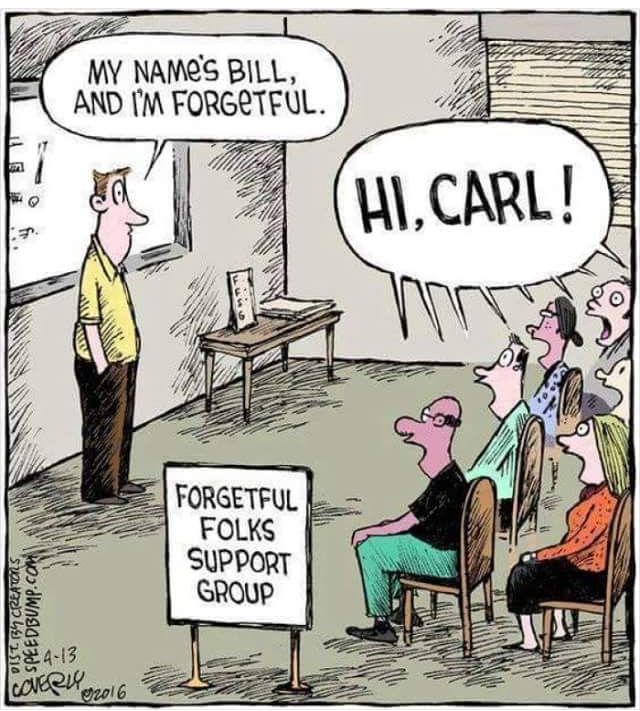
I saw the following statement on the front of a T-shirt (a notable and always reliable source of profound information).
A goldfish is the happiest animal on earth because it has a 10-second memory.
The statement is false (scientific studies debunk the idea), but it does make a good point: There’s value in leaving the past behind and living in the moment. So let’s use this silly, humorous statement to discuss an important topic.
We humans are, perhaps, the most unhappy sentient beings on earth because we continue to dwell on things we should let go of; things in our past continue to adversely affect us. In these instances we would benefit from a short memory.
I’m not suggesting that we ignore, deny, or try to erase painful memories. But we can properly and thoroughly process past experiences so they don’t continue to handicap us. The troubling event is still there but it’s been diffused.
Sometimes, we need to simply “drop” minor offenses and inconveniences; such as: Your plane is delayed; someone makes a tacky comment about you; you’re cut off in traffic. Learn to simply dismiss these minor issues. Here’s a post I wrote about mastering the helpful skill of “dropping it.”
More importantly, we need to properly process and manage major, painful issues from the past such as: a dysfunctional upbringing, getting fired from a job, a major illness, or failed marriage. It’s difficult to just “drop” these issues; they need to be processed, ideally with help from a professional counselor or a wise friend. These issues are often deeply impeded, sometimes difficult to identify, and complicated to resolve.
One downside to the goldfish syndrome (if it was real) would be that favorable experiences in life—memories that we should remember, savor, and be grateful for—would be lost. So I’m not suggesting we wipe our memories clean; just mitigate the painful and embrace the positive.
We will find ourselves in a place of quiet rest when we properly process recent and distant past experiences. Disempower the painful and savor the good.


